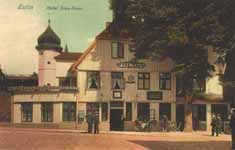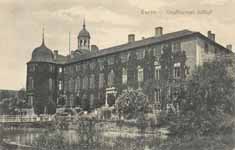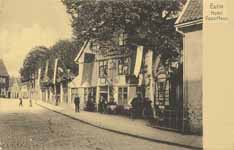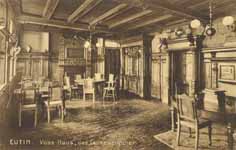.






Eutin
Eutin (German pronunciation: [ɔʏˈtiːn]) is the district capital of Eastern Holstein (German: Ostholstein) located in the northern German state of Schleswig-Holstein. As of 2005, it had some 17,000 inhabitants.
Market.
The originally Slavonic settlement (Utin) was populated in the twelfth century by Dutch settlers. In 1156 Eutin became a market town. City rights were granted in the year 1257. It later became the seat of the Prince-Bishopric of Lübeck, as Lübeck itself was an imperial free city. When the bishopric was secularized in 1803, Eutin became part of the Duchy of Oldenburg. As a result of the Greater Hamburg Act of 1937, Eutin passed from the Free State of Oldenburg to the Prussian Province of Schleswig-Holstein. After World War II, it became part of the modern Bundesland of Schleswig-Holstein.
Eutin is the birthplace of composer Carl Maria von Weber. To honour him, an open air theater (Freilichtbühne) was built in the Eutin Castle's park in 1951 where several operas are performed during July and August during the Eutin Festival. The capacity of this open-air stage is about 2000 people.
Geography
Eutin is surrounded by a number of lakes of the Holsteinische Schweiz including Großer Eutiner See, Kleiner Eutiner See, Kellersee and Ukleisee.
Famous citizens
Nicholas Mercator, mathematician, born in Eutin in 1620.
Johann Heinrich Voss
Carl Maria von Weber
International relations
See also: List of twin towns and sister cities in Germany
Eutin is twinned with:
Denmark Nykøbing Falster, Denmark
Germany Putbus auf Rügen, Germany
United States Lawrence, Kansas, USA
References
^ "Statistikamt Nord: Bevölkerung in Schleswig-Holstein am 31. Dezember 2010 nach Kreisen, Ämtern, amtsfreien Gemeinden und Städten" (in German). Statistisches Amt für Hamburg und Schleswig-Holstein. 21 July 2011.
From Wikipedia, All text is available under the terms of the GNU Free Documentation License

